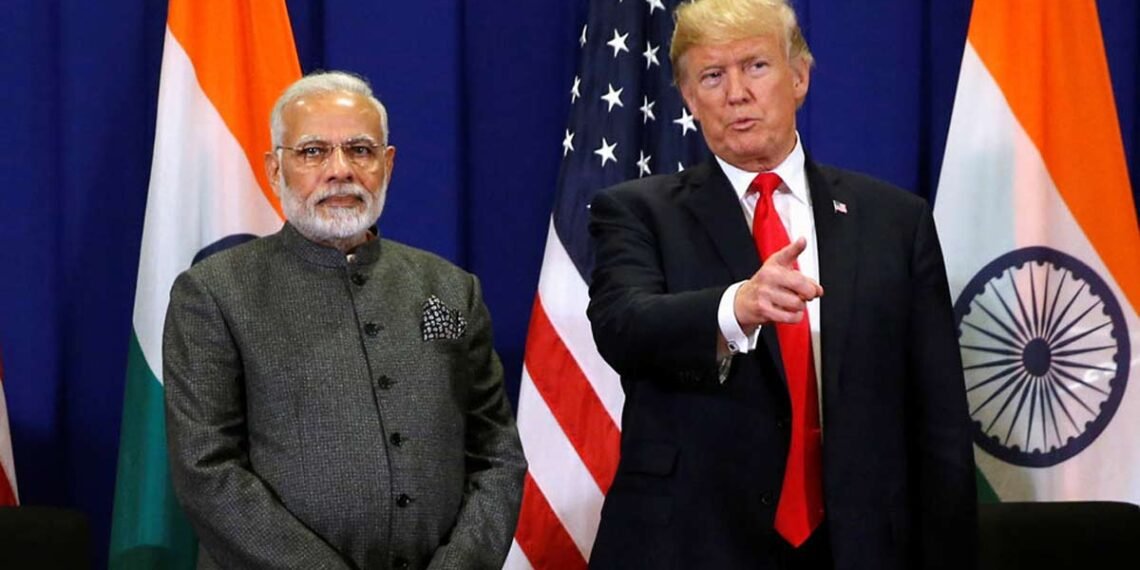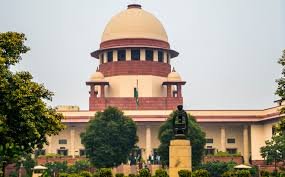By clubbing India with Bangladesh and Nepal in funding cuts, the Trump administration appears to be undermining India’s geopolitical standing. With tariffs on steel, pharma restrictions, and diplomatic cold-shouldering, is Washington signaling a shift in its South Asia strategy?
BY Navin Upadhyay
The Trump administration, in collaboration with Elon Musk’s Department of Government Efficiency (DOGE), has made a series of decisions that appear to undermine India’s economic and diplomatic interests. imposing trade barriers to canceling funding for Indian electoral initiatives, and excluding Prime Minister Narendra Modi from President Trump’s inauguration, these moves suggest USA administration’s changed priority toward India.
Funding Cut: Clubbing India with Bangladesh and Nepal:
On February 15, 2025, DOGE announced the cancellation of multiple international funding programs, including USD 21 million intended for “voter turnout in India.” The decision was part of a broader effort to cut U.S. taxpayer expenditures on foreign projects. However, what raised eyebrows was the manner in which India was grouped alongside Bangladesh and Nepal in the funding cancellation list.
Election interference by USAID in India… US$ 21 million for "voter turnout"
They also used $ 29 million for "strengthening political landscape in Bangladesh"… where's that bastard @JonFDanilowicz now
Interference in Nepal though $20 million for "fiscal federalism" https://t.co/nkWH7x4yg4 pic.twitter.com/R1NSQQA6CI
— Upendra M Pradhan (@UpendraMPradhan) February 16, 2025
This move has been interpreted as an attempt to belittle India’s global standing by placing it in the same category as smaller South Asian nations. While Bangladesh and Nepal receive substantial foreign aid due to economic constraints, India—recognized as an emerging global power—has traditionally been viewed on a different scale. The decision to lump these nations together undermines India’s geopolitical stature and strategic autonomy.
ALSO READ: US States Fight Back: Lawsuit Challenges Musk’s Leadership
The Musk-led DOGE department listed several funding cuts, including:
- USD 21 million for voter turnout efforts in India
- USD 29 million for political landscape strengthening in Bangladesh
- USD 39 million for fiscal federalism and biodiversity conservation in Nepal
- USD 486 million for the ‘Consortium for Elections and Political Process Strengthening’ globally
BJP responds:
BJP’s Social media head Amit Malviya raised concerns about the implications of such funding. “$21M for voter turnout? This definitely is external interference in India’s electoral process. Who gains from this? Not the ruling party for sure!” he posted on X.
Trade War with India: Tariff Hikes and Economic Retaliation:
Alongside funding cuts, the Trump administration has escalated economic tensions by imposing steep tariffs on Indian exports, particularly in the steel, aluminum, and pharmaceutical sectors. These tariffs, ranging from 25-40%, have disrupted India’s trade flow and placed added pressure on industries that rely on U.S. exports.
- Steel and Aluminum Tariffs: The U.S. increased import duties on Indian steel by 35% and aluminum by 40%, citing “unfair trade practices.” This move has led to job losses in India’s manufacturing sector.
- Pharmaceutical Trade Barriers: The U.S. FDA introduced new restrictions on Indian pharmaceutical exports, citing “compliance concerns,” affecting a $10 billion industry that supplies affordable medicines to American consumers.
- H-1B Visa Crackdown: New policies under Trump 2.0 have tightened the issuance of H-1B visas, directly impacting Indian tech workers and IT firms that depend on skilled migration to the U.S.
ALSO READ: Myanmar Militia Set to Deport 10,000 Cyber Scam Operatives
These economic measures have led to growing tensions, with Indian Commerce Minister Piyush Goyal calling the tariff hikes “unwarranted and protectionist.”
Diplomatic Snubs: Modi Excluded from Trump’s Swearing-in Ceremony:
Adding to the series of unfriendly moves, Prime Minister Narendra Modi was notably absent from President Trump’s second-term inauguration. While leaders from allied nations, including the UK, Japan, and Israel, received invitations, India’s absence sparked speculation about a deliberate snub.
U.S. Ambassador to India, Eric Garcetti, addressed the issue, stating that “the guest list was limited,” but diplomatic analysts believe the omission signals cooling relations between the two administrations. The move contrasts with Modi’s past visits to the U.S., where he was previously received with high diplomatic honors.
Shifting Priorities in U.S.-India Relations:
Trump’s policies suggest a shift from the “strategic partnership” narrative toward a more transactional relationship, with increasing economic and political pressure on India. Key areas of tension include:
- The U.S. pushing India to reduce ties with Russia, especially in defense procurement.
- Pressure on India to open its agricultural sector to more American imports.
- U.S. lobbying against India’s push for semiconductor self-sufficiency, which threatens American chip exports.
The recent actions by the Trump-Musk administration, from funding cancellations and trade restrictions to diplomatic exclusions, suggest a recalibration of U.S.-India ties. The decision to club India with smaller South Asian nations like Bangladesh and Nepal appears to be a deliberate attempt to diminish India’s standing on the world stage. While economic interdependence remains strong, the growing friction raises questions about the future trajectory of the relationship. India, in response, is likely to adopt a more assertive foreign policy stance, balancing its partnerships with the U.S., Russia, and emerging global players.














